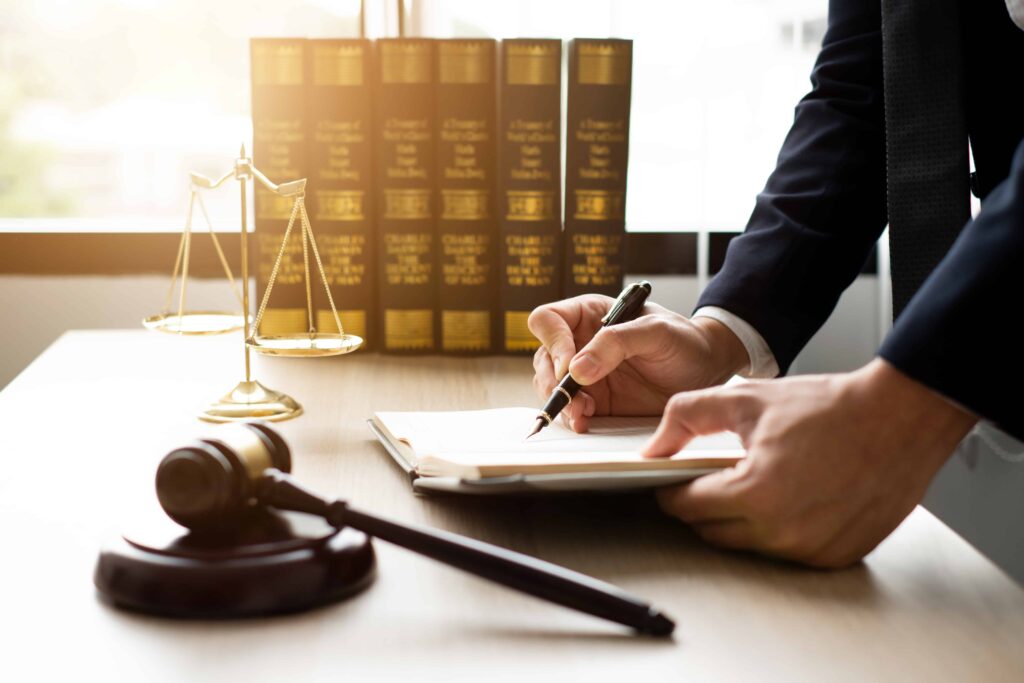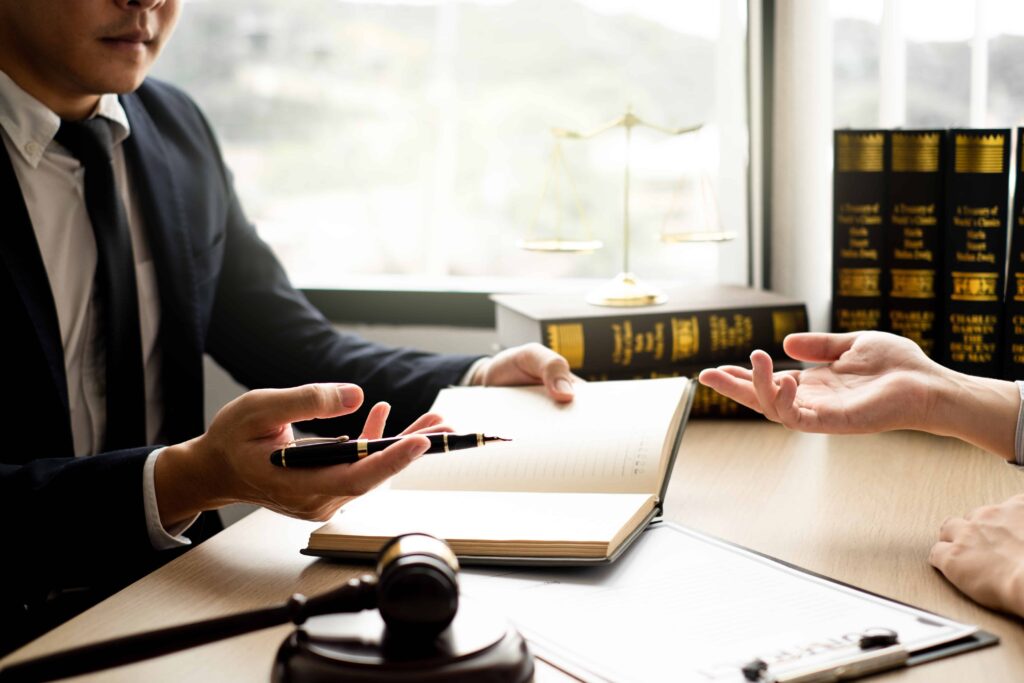How to Choose the Right Criminal Defense Lawyer
When you are accused of a crime, you face two distinct battles. The first is with the prosecution. The second, arguably more immediate, is the internal struggle to make the right decisions under immense pressure.
Key takeaways
- Relevant experience is more than just years in practice; it means a deep familiarity with the specific criminal charges you face and the local Montgomery County court system.
- A lawyer’s communication style is as important as their legal skill. You need an advocate who listens, provides clear explanations, and keeps you informed at every stage.
- A clear, customized legal strategy is a non-negotiable quality. Avoid any attorney who offers a one-size-fits-all approach or makes promises about the outcome.
- The initial consultation is your opportunity to interview the attorney. Arrive prepared with specific questions about their approach, fees, and how they would handle your case.
The Foundational Qualities of an Effective Defense Attorney
Finding the right legal representation goes beyond a simple online search or a flashy billboard. It requires carefully assessing the core qualities that truly matter when your freedom is at stake.
A strong advocate possesses specific legal experience, deep local knowledge, and personal attributes that foster trust and build a powerful defense.
Beyond years of practice: what experience really means
Experience is not just a number. An attorney who has practiced for 20 years but handles only a few criminal cases a year may be less effective than one with five years of dedicated criminal defense experience.
True experience means a focused, hands-on command of the specific area of law relevant to your case. When evaluating a lawyer’s background, look for a demonstrated history of handling cases similar to yours.
Whether you face DUI, theft, or more serious felony charges, their track record should show a consistent and dedicated focus on that type of defense.
The local advantage: Why Montgomery County knowledge matters
Criminal law is practiced in a specific place. A lawyer regularly appearing in the Rockville and Montgomery County courthouses brings a significant advantage. They understand the local landscape in a way an outsider cannot.
This familiarity extends to the tendencies of local prosecutors, the expectations of specific judges, and the unwritten rules of the local legal community. This insider knowledge can be invaluable when negotiating a plea or arguing a motion.
The Personal Traits of a True Advocate

Legal skill is only part of the equation. Your lawyer’s personal rapport and communication style will profoundly impact your experience. You need someone who is not only a capable tactician but also a supportive guide.
A truly effective advocate will possess certain indispensable personal qualities. These traits ensure that you will be treated with respect and that your case will receive the attention it deserves.
- Patience and empathy. They should listen to your story without judgment and show genuine concern for your situation.
- Clear and direct communication. They must be able to explain complex legal issues in plain English, without resorting to confusing jargon.
- Composed confidence. Their demeanor should inspire trust, not anxiety. They should be calm and professional, even when discussing difficult aspects of your case.
- Unwavering professionalism. From their office environment to their interactions, every element should reflect a high standard of professional conduct.
These qualities are not superficial. They are the bedrock of a strong attorney-client relationship, which is essential for mounting a successful defense.
Our attorneys are known for these qualities. But don’t take our word for it, check out what our clients say here.
The Initial Consultation
The first meeting with a potential lawyer is your chance to conduct an interview. This is not a passive appointment where you simply receive information; it is an active evaluation to determine if this person has the skill, temperament, and strategy to protect your future. Being prepared for this meeting is essential.
How to prepare for your first meeting
You should gather all relevant documents to make the consultation as productive as possible. This includes the police report, charging documents, bail papers, and a copy of your citation or summons. You should also write down a detailed, chronological account of the events from your perspective. Finally, prepare a list of specific questions you want to ask the attorney.
Assessing communication style and approach
During the meeting, pay close attention to how the attorney interacts with you. Do they give you their full attention, or are they distracted by calls and emails? Do they listen patiently to your entire story before offering an opinion? A good lawyer will make you feel heard and respected. They should be able to answer your questions directly and provide clear, understandable explanations of the legal process.
Evaluating the initial assessment of your case
A reputable attorney will not make grand promises or offer a guaranteed outcome during a first meeting. Instead, they should provide a sober, preliminary assessment based on the facts you have presented.
They might identify potential strengths and weaknesses in your case, outline the immediate next steps, and explain your case’s different paths. Be extremely wary of anyone who seems overly optimistic or claims your case is a “slam dunk.”
Critical Questions to Ask a Potential Criminal Defense Lawyer

To properly vet an attorney, you must ask direct and insightful questions. Their answers will reveal much about their legal approach, firm practices, and what you can expect if you hire them.
This is how you move from a general impression to a concrete understanding of their capabilities.
Case strategy and management
You need to know how the lawyer thinks and operates. Their answers should demonstrate a methodical, proactive approach to building a defense. This is your opportunity to gain insight into their strategic thinking and commitment to client communication.
It is essential to ask pointed questions about their process to gain a clear understanding of what working with a lawyer will be like. Their responses will tell you a great deal about their practice.
- Who will be the primary attorney handling the day-to-day work on my case?
- What is your preferred method for keeping clients updated on their case status?
- Based on what you know now, what are the first three steps you would take to begin my defense?
- What potential challenges or obstacles do you foresee in a case like this?
- What information or documents do you need from me to get started?
The answers to these questions will reveal their level of organization, strategic thinking, and dedication to keeping you involved in your defense.
Clarifying legal fees and retainer agreements
Discussions about money can be uncomfortable, but they are absolutely necessary. A professional and ethical attorney will be transparent about their fee structure. Most criminal defense lawyers work on a flat fee for the entire case or a particular stage, while others bill on an hourly basis.
Request a written fee agreement that clearly outlines the scope of representation and all potential costs, including expert witness fees and private investigator expenses.
Red Flags When You Choose a Criminal Defense Lawyer

Knowing what to look for and avoid is just as important as knowing what to look for. Certain behaviors and claims are serious red flags that suggest an attorney may not be trustworthy, professional, or effective.
Recognizing these warning signs can help you steer clear of representation that could do more harm than good.
Guarantees of a specific outcome
This is the most significant red flag of all. No ethical lawyer can or will ever guarantee a result. The legal system is inherently unpredictable, and making such a promise is a violation of the rules of professional conduct.
A confident lawyer will talk about their experience, their strategy, and their commitment to fighting for you, not about a guaranteed win.
High-pressure sales tactics
You are making a monumental decision and should never feel pressured to hire an attorney immediately. A reputable lawyer will encourage you to take your time and make a choice with which you are comfortable. High-pressure tactics, such as claiming a special fee is only good for that day, are a sign that the lawyer is more focused on their business than on your best interests.
Lack of a clear fee structure
If an attorney is vague or evasive when discussing their fees, this is a major cause for concern. You have a right to know exactly what you will be paying for and how you will be billed. A lack of transparency about finances at the beginning often signals poor communication and potential problems down the road.
FAQ
How quickly should I hire a lawyer after an arrest?
You should seek legal counsel as soon as possible. An attorney can protect you during police questioning and represent you at your initial bail hearing. Hiring a lawyer early allows them to investigate and build your defense before crucial evidence disappears or witness memories fade.
Is a public defender a good option?
Public defenders are often very experienced and dedicated lawyers. However, they typically handle extremely high caseloads, which may limit the amount of time they can dedicate to any single case. If you qualify financially, a public defender is a valuable option, but hiring a private attorney allows you to choose the specific lawyer who will represent you.
What is the difference between a flat fee and an hourly rate?
A flat fee is a single, upfront price for handling your entire case or a specific stage of it. This provides cost certainty. An hourly rate means you are billed for the actual time the lawyer spends working on your case. Both are common, so ensure you understand which structure is being used.
Does the location of the law firm matter?
While a lawyer from anywhere in Maryland can represent you, choosing a firm with a strong presence in Montgomery County is beneficial. Local attorneys are more likely to have established relationships and a working knowledge of the local court personnel, which can be an advantage in negotiations and court proceedings.
What if I hire a lawyer and later feel it’s not a good fit?
Yes, you always have the right to change your attorney at any point in your case. If you lose confidence in your lawyer or feel poor communication, you can seek new representation. The new lawyer you hire will file a “Notice of Appearance” with the court, and your previous lawyer will file a “Motion to Withdraw.”
While this is your right, switching attorneys mid-case can sometimes cause delays, so making a careful and informed choice is always the most effective strategy.
Taking the First Step Toward Your Defense
Choosing your legal representative is an act of empowerment. It is your first and most important step toward taking control of a difficult situation and fighting for your future.
The right lawyer will be more than just your attorney; they will be your trusted guide, strategic partner, and unwavering advocate through every challenge ahead.
If you are facing criminal charges in Rockville or Montgomery County, you deserve a defense team that is fully committed to your case.
At Seddiq Law, we are ready to listen to your story and explain how we can help. Call us at (301) 513-7832 for a confidential consultation.
You can also complete our secure online intake form here. Once completed, an attorney will contact you within ten (10) minutes.


